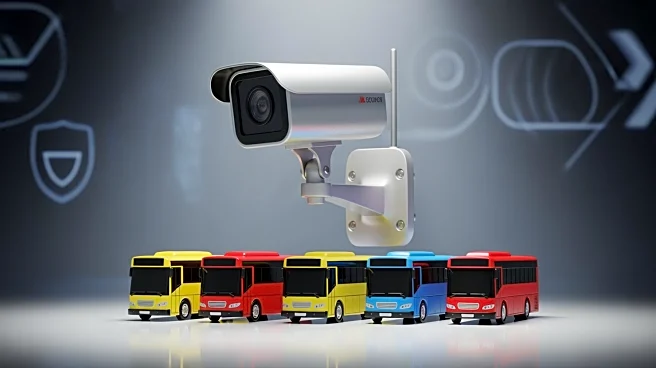What's Happening?
A Norwegian public transport operator, Ruter, plans to enhance security measures after tests revealed that Chinese-made electric buses could be remotely controlled by the manufacturer. The tests showed that Yutong Group, the bus maker, had access to control systems
for software updates and diagnostics, raising concerns about potential exploitation. Ruter is responding by imposing stricter security requirements, developing firewalls, and working with authorities on cybersecurity standards. The findings have prompted discussions on data protection and remote operations in the transport sector.
Why It's Important?
The ability to remotely control vehicles poses significant security risks, highlighting vulnerabilities in the transport sector. The situation underscores the importance of cybersecurity in protecting critical infrastructure and consumer data. As electric vehicles become more prevalent, ensuring secure and reliable operations is crucial for public safety and trust. The incident may influence regulatory approaches to data protection and remote control capabilities in the automotive industry.
What's Next?
Ruter's response includes implementing tougher security rules in future procurement and developing systems to delay inbound signals for better oversight. The company is collaborating with authorities to establish clear cybersecurity requirements. The findings may prompt other transport operators to review their security measures and consider similar actions to protect against hacking and unauthorized access.
Beyond the Headlines
The incident reflects broader concerns about surveillance and data privacy in the digital age. As technology advances, the balance between innovation and security becomes increasingly important. The situation may lead to discussions on ethical considerations and the need for international cooperation in setting cybersecurity standards.















